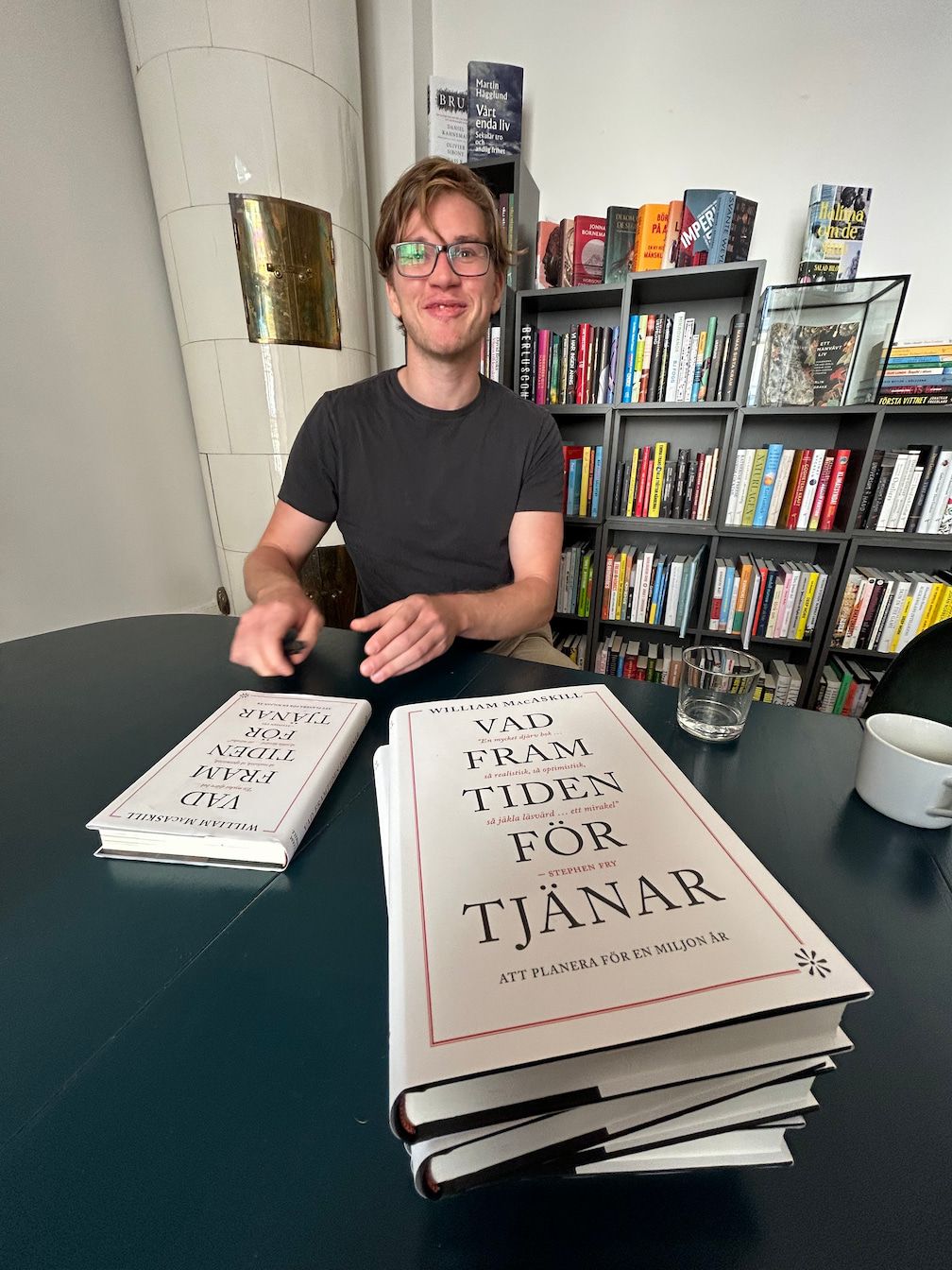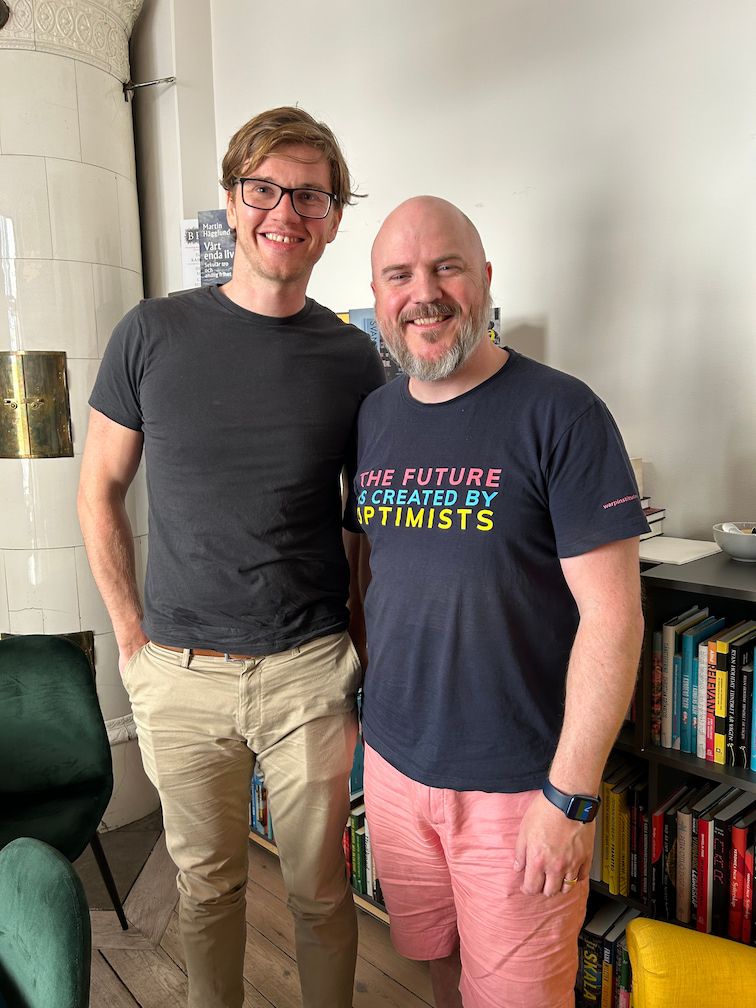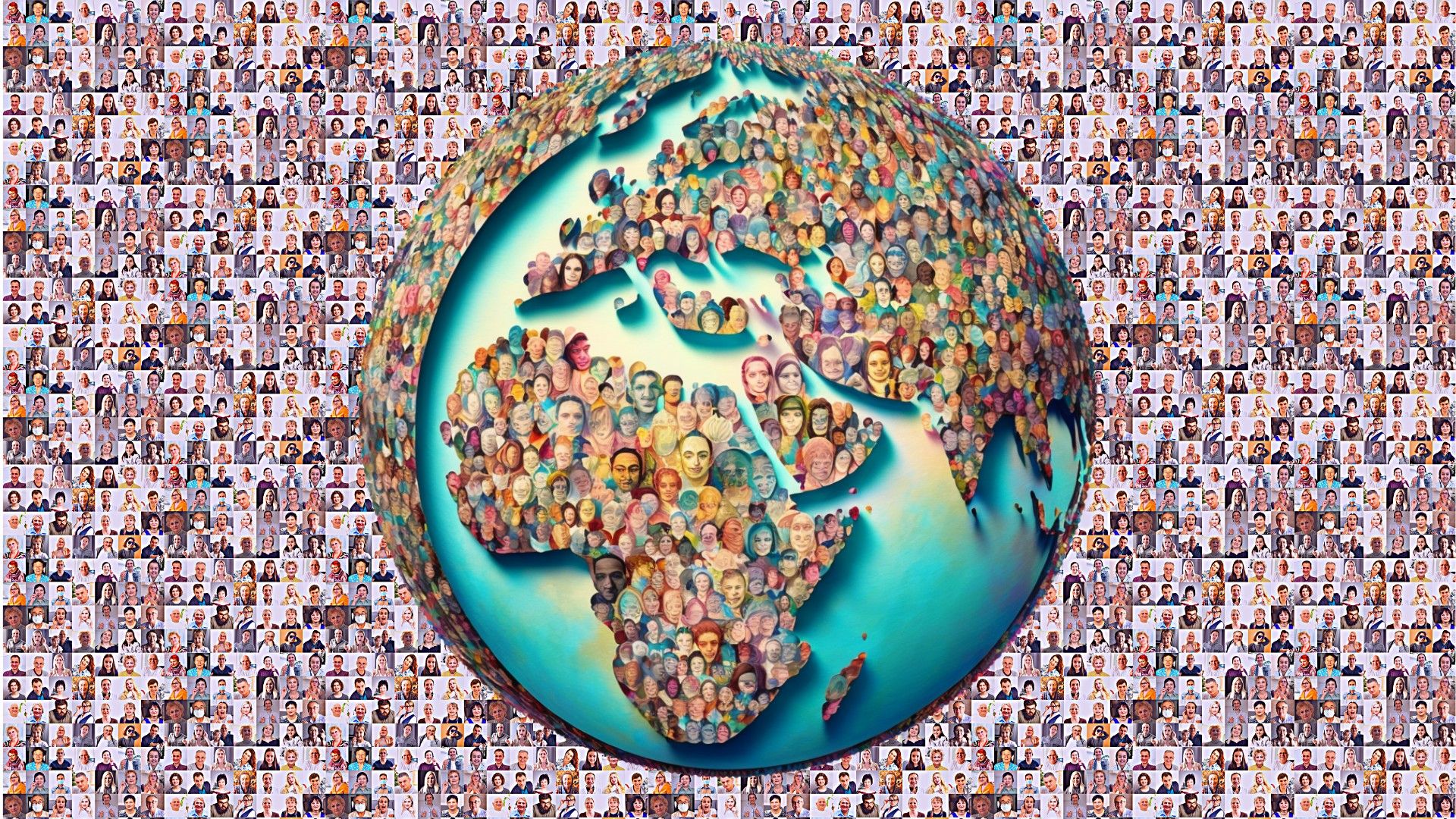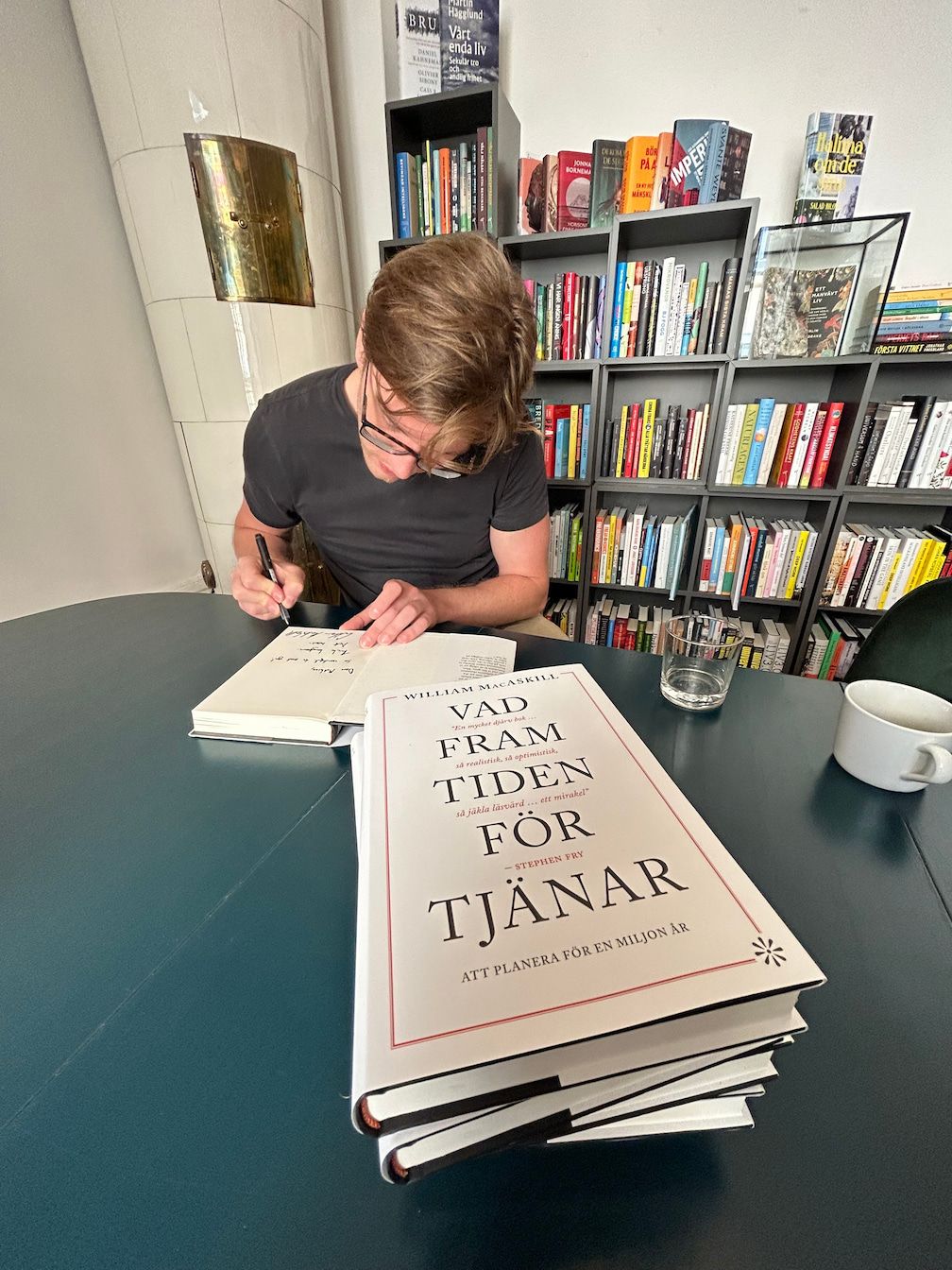
📖 Will MacAskill: Think long term - act now
We spoke to the world-renowned philosopher about what the future deserves, why the future is likely to be good - and how you can impact it.
Share this story!
🎶 Let us sing of the student's happy day
It's a warm June day in Stockholm. On the streets, newly examined students are driving around on truck beds, spraying cheap beer. From the speakers, there's some thumping techno, but somewhere the student song is also being sung.
🎶 Let us sing of the student's happy day, let us rejoice in the spring of our youth!
Perhaps the students are thinking about the future. Not right there on the truck beds, but during these weeks. They are leaving the slightly boring but safe existence of school.
The question is, how far into the future are they thinking?
Probably not as far as the philosopher who sits in the office of the publisher Volante in the Old Town. For he thinks hundreds, thousands, and millions of years into the future.
The young Oxford professor, Will MacAskill, is in town to talk about the Swedish edition of his book, What We Owe The Future.

I ask Will MacAskill to give his elevator pitch for longtermism.
"Longtermism is the idea that we should do much more than we currently are, to protect the interest of future generations. And thinking about the long term impact of the things we are doing today. Trying to make the long term impact as good as possible, should be a key priority of our time."
MacAskill is a longtermist, and his book is the Bible for longtermism.
Will the future be good?
At Warp News, we want the future to come sooner, because we think it is very likely that the future will be better than the present, and much better than the past. You give a very good argument, in your book, as to why this is so.
"Good things happen because people saw that things could be good, and made it happen. If I say, 'I had a really nice weekend', you are not like 'Oh, wow, why did that happen?' Because I wanted to have a nice weekend, so I did. In contrast, when bad things happen, normally that is not because someone is aiming for that bad thing in itself. It is a side effect, of self-interest, greed, or power hungriness."
He gives an example.
"One of the worst atrocities we currently commit, is the suffering we inflict on animals. It is not because we want animals to suffer. It is because we like the taste of meat, and want to buy it cheaply."
And he thinks this will likely have a bigger impact in the future.
"When we look into the future, we should expect more and more of what happens to be intentional. Because we will get more and more powerful, thanks to better technology and more knowledge."

What future does he want?
In my recent interview with Kevin Kelly, he mentioned his new project, The hundred-year desirable future.
I ask Will what his desirable future is.
"I want an intermediate stage, where everyone has the time and space to reflect and think about what the right moral values are, what we should be aiming for. And then are able to build some section of civilization in accordance with those."
"I think it is likely that we will spread to the stars. That means there could be many, many utopias based on many different people's views – all existing at once. So the kind of intense trade-offs that we have to make at the moment, they could be relaxed."
Change a value, change the future
For me the most profound idea in Will MacAskill's book is the one about value change. If we change a value in society, like ending slavery. That (dramatically) affects everyone who is a slave at that moment. But it also – and this is the profound insight – affects everyone who would have been a slave in the future.
So a value change could affect not only millions or billions of people today, but potentially many, many billions of people in the future.
If someone wants to change a value today, how should they go about that?
"One important step is to find changes to values that seem neglected, but yet is very important and that could still be important even given the radical technological change that we should expect in the hundred coming years."
I've written a piece on what this means for us at Warp News.

If you could implement one idea or value into as many brains as possible, what would that be?
"Effective altruism. Thinking from the point of the view of humanity as a whole."
MacAskill's advice on having impact
Will MacAskill is only 36 years old. Yet his ideas have already had a great impact. He co-founded Giving What We Can, the Centre for Effective Altruism, and 80,000 Hours.
What is your advice to others that want to have an impact?
"Sticking to your guns. In the early stages of launching Giving What We Can, in 2009, we encouraged people to give at least ten percent of their income to charities. And everyone was like 'that is too high, why not one percent'? And other organizations did do a one percent pledge, and they had way less impact."
"There were a group of people out there who didn't want little nudges. The fact that we stuck to our guns led to the movement."
"Now we have close to ten thousand members, but we started with 23. After one year, we had 84. I still remember the numbers, because every single one was so big."

Before I bid him farewell, I ask him to sign a book. He signs it: Think long term. Act now.
The heat stands still among the narrow streets of Old Town, Stockholm.
In the distance, the student trucks can still be heard.
I zigzag between the tourists, humming the student song.
🎶 Still, our hearts are beating strong, and the brightening future is ours.
Mathias Sundin
The Angry Optimist
By becoming a premium supporter, you help in the creation and sharing of fact-based optimistic news all over the world.



